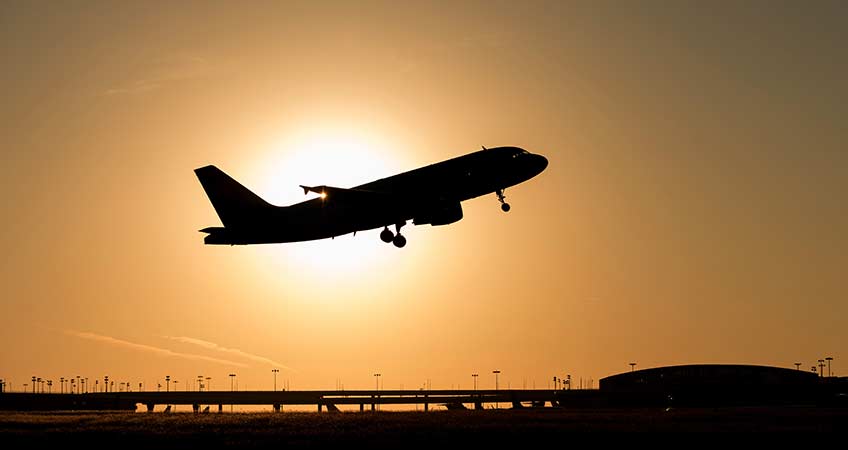News Release: NREL to Lead $5 Million Initiative to Reduce Energy Use and Increase Energy Efficiency of Major Transportation Hub
Study will identify how electrification, connectivity, and automation can significantly improve energy-efficient transportation of people and goods
The U.S. Department of Energy’s National Renewable Energy Laboratory (NREL) will lead a team of researchers – in partnership with Dallas Fort Worth (DFW) International Airport, one of the busiest airports in the world – to identify new transportation technologies that could dramatically improve energy use, convenience, and affordability.
Working with DFW and the surrounding region, NREL and Oak Ridge National Laboratory (ORNL) will identify technology approaches that maximize mobility energy productivity – or the overall quality of mobility with respect to time, cost, and energy – of passenger and freight options in this major transportation hub.

The U.S. Department of Energy’s National Renewable Energy Laboratory will work with Dallas Fort Worth International Airport to identify new transportation technologies that could improve energy use, convenience, and affordability. (Photo courtesy of Dallas Fort Worth International Airport)
“Through the national laboratories’ unique high-performance computing (HPC) resources and data sciences expertise, we will generate long-term models based on real-world data from DFW and its transportation partners to support smart, energy-efficient mobility options for people and goods,” NREL Associate Lab Director, Mechanical & Thermal Engineering Sciences, Johney Green said.
The team of experts from NREL and ORNL will utilize the powerful scientific computing capabilities at the labs to solve complex problems needed to optimize modern transportation systems. NREL’s expertise in computational sciences, vehicle technologies, and mobility systems will be leveraged to develop sophisticated models of current and future behaviors based on expanded mobility choices to and from transportation hubs, increased freight volume, and anticipated dynamics of airport access.
These model results, combined with insights from the airport and its operating partners, will inform realistic recommendations that can guide long-term investments at DFW and other transportation hubs over the next 20 years.
“DFW Airport is a major economic driver for one of the fastest-growing metropolitan areas in the country, and we’re pleased to partner with NREL and ORNL to identify solutions that will keep us in front of the region’s rapidly evolving transportation needs,” said DFW Airport Executive Vice President of Operations Chad Makovsky. “We anticipate the labs developing models for convenient, energy-efficient methods of moving people and commerce that will guide our efforts for decades to come.”
“By helping the nation’s transportation hubs model possible future scenarios, these insights will help them navigate the rapidly emerging energy-efficient technologies that will change mobility plans for years to come,” said NREL Senior Scientist Caleb Phillips. “Although we are focusing initially on DFW, we expect the models and methodologies to be adaptable to other airports and transportation hubs across the country.”
This research is funded by a $5 million award from DOE‘s Vehicle Technologies Office. For more information, visit https://www.nrel.gov/transportation/index.html and https://www.NREL.gov/computational-science/index.html.
NREL is the U.S. Department of Energy's primary national laboratory for renewable energy and energy efficiency research and development. NREL is operated for the Energy Department by The Alliance for Sustainable Energy, LLC.
Last Updated Jan. 22, 2026
